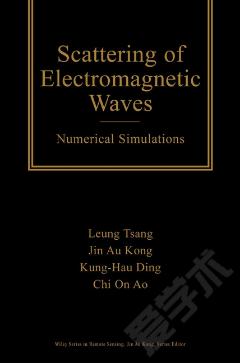Reflection and Refraction of Electromagnetic Waves by a Dielectric Slab Between Dielectric Media
The method is also extended to cover the case of one surface deviating slightly from a plane. The only difference in this problem is that the boundary conditions of continuity are now to hold on a surface which is not quite plane. The method adopted is to consider the boundary conditions on the plane from which the actual surface deviates slightly. The effect of this approach is that the components tangential to this plane will now have known discontinuities across the plane; the formulation will otherwise be the same as for plane surfaces.
{{comment.content}}








 京公网安备 11010802027623号
京公网安备 11010802027623号